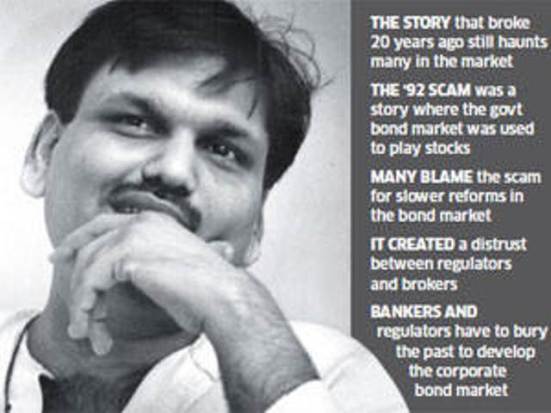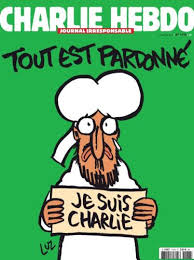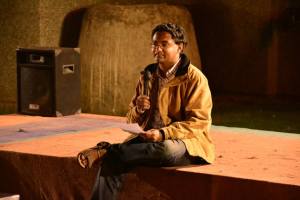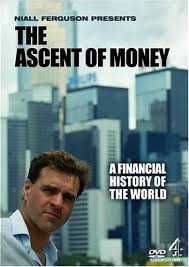On Writing
To write of general and commonplace, was something I could never manage. I wonder now, if it was my vanity. Something I cannot keep my finger on hindered me from writing, it was like a silence whose origin I couldn’t exactly determine. It was not causeless, I know that and it did have a starting point. For some reason all that I am seems to circle and come back to the same event, it saddens me how momentous the event has become for me, all my thought, rationality, irrationality seems to arise from this point. It is sad when life lived every moment can only make sense of moments, that knowledge we so love/fear, we exalt them in importance, soon the moments are not some random events, they slowly lose contextual importance and assume moments of revelation and great truths/agonies in personal capacities. I don’t entertain this idea as people will assume that’s all that ever mattered in their life, the moment, and put their happiness, sadness, hearts, minds even existence at stake. A moment in attempts to be guarded and remembered is reimagined, in its reimaginations it is lost. I don’t mind people being reckless, but they should stop and consider that there is way more to life than what they remember and actively remember of it. Now I shall talk of people who jump, they love jumping, in front of cars, from buildings, those who inflict self harm and belittle both self and existence, to them I say, there is much more to life than what you remember of it, there is an unremembered existence, it exists in a realm between a reality and falsehood. I finally understand why I cannot write what is commonplace, perhaps it’s because I don’t want to be forgotten, and it scares me moreover. But, more so, I guess the story told and remembered does not interest me, it’s common, I want to write a story that was forgotten, that was buried, for those are the one’s worth writing, they don’t scream of their importance, they wait and are forgotten. A story that has already been told ceases to interest me for it is predetermined, all that is left are tricks and tropes the author can use, the only story with telling is not the one you know, it is the one that had been hiding all this time.

On Religion
He was home later than usual, work like tragedy often arrives at an unseeming time and disrupts the flow of life, rather, the living. Usually him being late would not arise much of a ruckus, but today he had to perform the puja, of one of the days of Navratri, a religious festival, where he being a (the) man, had taken up the job of uttering the word of man to usher in God. His arrival was waited on by hungry stomachs. Hunger is the most treacherous of enemies, for in its absence it gives a sense of whole-ness, people are better off with enemies they can be sure of. Hunger was nothing, it was the absence of food, however it seems to evoke more reason and argument than its meaningful counterpart, perhaps there is much to talk about hot air, people love vacuums, nothings, for only they represent the possibility of anythings.
His arrival was a rather pompous affair, as he marched in, belly first, man on a mission, to pray. Grateful looking people surrounded him, as he marched straight to take a bath and get ready for the rites, while serfs did the menial task of putting his stuff in place, today he has a more important task, he was attending God. Sometimes it seems realities are the least of our concerns, suppositions determine our thinking, our suppositions of people, of places and even ourselves, reality is overlooked and in this perception of overlooked reality, it is tried to be saved, people end up believing, defending, rioting for what they think was real in an unreal plane. Then in the apt attire the puja began, and globules of water slowly made way from his hair, to the nape of his neck to his spine, I wondered how all things had to fall, how in all this rubble only God seemed to rise, in all this reason only God was upheld. God did not fall, perhaps Nietzsche was right as he proclaimed the death of God, but even that proclaims a confirmed existence, perhaps God is not being upheld, it is the human conception of it, only the God who divides, segregates, discriminates, riots and kills that is upheld. I wonder where Durga is, in her attire adorned with gold and red, perhaps she was already gone, I chuckle as I wonder if that was true, what was my father praying for? Perhaps for the strengthening of his supposition of himself as a good person, it is difficult to know, belief usually ends up making up for it.
I excuse myself through the entire chant, however his wife tells me that my presence will be required in the aarti. It is the final part of the prayer where the praises of the Gods are sung. He, imagining himself to a reincarnations of the greats of melody assumes a loud voice that ensures hearing even in the neighbouring places, being heard is an important and integral part of puja, it was important, at some level that people knew, otherwise it seemed to beat the purpose. He assumes a strange high pitch at crescendos, which sounds like something is stuck in his throat. I try to keep a straight face, but he slowly starts making pelvic movements caused by restlessness which had resulted in constant shifting of the legs. Finally aarti was complete, people covered themselves with smoke, wafted it in, had the dry fruits put in offering and proclaimed their love for God, then exclaimed their need for food. Hunger seemed to be asserting greater presence as it was threatening to assume a religion. At food, there are attempts at making conversation by him after food had disappointed him, since he was on a fast and was eating only fruits and drinking milk, he asks me why I never talk to them, don’t I have anything to talk about. I chuckle and ignore his question, he assumes it is the news, implores some more and more monosyllables are exchanged. People don’t understand that you cannot suddenly demand understanding of a person. I wonder if this is what makes us demanding even with our God, there is an incessant need to want. Sometimes it feels that there is a frozen world where only I move, and as I glance at everyone, I try to capture them, however, even the solid moves, changes, and beyond a point I wonder what changes faster, who is solid, who is liquid and who am I. Perhaps that forces us to believe in god. An inability to understand our self, forces us to pretend understanding of something else. The world is infinite change, we clamour to saves are statics, for who is truly moving?

On Being Lost
The streets were unknown to me, and walking in those streets I felt glad. There was a strange happiness in walking roads unknown, for a moment I was not an entity, I was not already determined. The streets looked at me, at a new person, I could be anyone. It seems all of existence that ever so often burdens me in streets familiar had lifted, there was a strange lightness to this existence. Walking along this road which paid little heed to the travellers who often sought them to reach places they desired, a person realizing that I was not from these parts came up and asked me where I was from? Emanating from this question which was simple on its face was another question that weighed on my soul, why did I leave, why do I feel this urge to wander? I feel, every once in a while, a person ought to stop and reflect and answer if a life lived indifferent is a life lived at all. As I wander and gaze at objects new and talk to people, the more I do, the more I realize that life can never serve itself as a singular existence, and only in acceptance of existence universal can life be. Even the stars seem beautiful today, but nothing has really changed. As I gaze into the darkness, the wind smells like promise of rain, I wonder if experience is destroyed by my attempts to put them into words. I fear in my efforts to constraint them in form and structure they somewhere lose their spirit. I don’t journey because I am lost, that would be a journey in vanity and self-interest. The more I wander the more concrete is the thought that journey is to a place in the hope that it would be a journey within. I don’t wander because I am lost, I do for it is only then when I am truly found. I tell the person where I come from I move on, as I walk, I smile. In this strange world of constant life, I feel I have discovered a secret as I have realized that a step forward was a step within.

On chinks in Understanding
There was a dead dog. There lying on the ground body covered with tread marks, entrails on the road, blood splattered everywhere, people said it was mad and ran into the traffic. It was a strange desire to face the world, head on. The driver shrugged, claiming there was little he can do, people nodded, after all what can he do? The witnesses tell us his stupidity in trying to run in traffic, it was stupid indeed, slowly the dog grew uglier and stupider in retellings. It was soon an ugly, mad dog, who ran on front of the vehicle, poor driver. But what of the dog? In an ever changing history the dog grows uglier, stupider, madder, and grotesque. As the stories become increasingly one dimensional, one important question will be forgotten. What of the dog? Was he domesticated, did he have an owner, was he stray, why did he want to jump in front of moving cars, why didn’t anyone advise him otherwise, what makes a dog give up life and not care for it, was that his last hurrah? The questions will be replaced with convenient beliefs and assumptions, I fear we will never know of the dog who died, for in his assumed madness and differences, his death is justified. We will never know what of someone who once wanted to take the world head-on.

On Revolution
A story in first person assumes a personal nature, however it is but a trope used by the author to imply a personal tone. Everything in writing is impersonal, the story, the characters, the motives, everything. The November revolution talks about introducing an anarchy, an uprising. But our revolution is a romantic one, it like our stories is one in which we appear and hope we are emotionally invested in, however like our stories, it means nothing. Our revolutions fail in their vanity and fears. There is an imaginary line that restricts us, beyond it is a story unfathomable, a story that matters. Let’s feign understanding again and pretend we understand the stories, for it is comfortable and in width we will make up a lack of depth.Our laughs seem genuine because they are not true.

On Infinite Objectivity of Hope
Hope in its general usage is considered to be a subjective entity, able to change on a person-person basis, however there is a general specificity to hope in particular groups. In this hope is general, for people in their finite efforts (infinite in their possibilities) are capable of infinite thought, this dichotomy exists due to the permanence of action on life in general. In that hope is objective, for it is particular and filled with purpose, not merely wishful thinking but a specific motive of positive. In this subjectivity is lost, for this hope is not personal, it is a blanket amalgamation of various acceptable goods of person. We extend and intermingle, we reach out, and we hope for a complete picture, and in the fragmented pictures of the world we possess, we aim to find meanings complete. Thus the infinite objectivity of hope. Thus the black, thus the white.

Submitted by
Piyush Kumar
Third Year IPM Student















